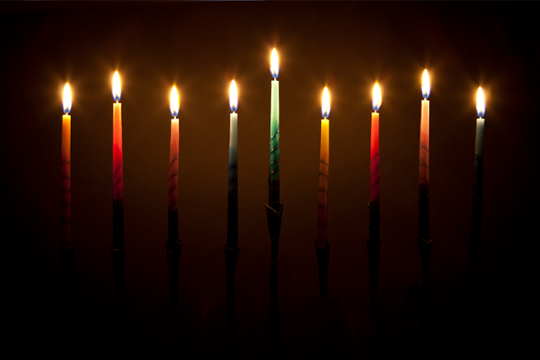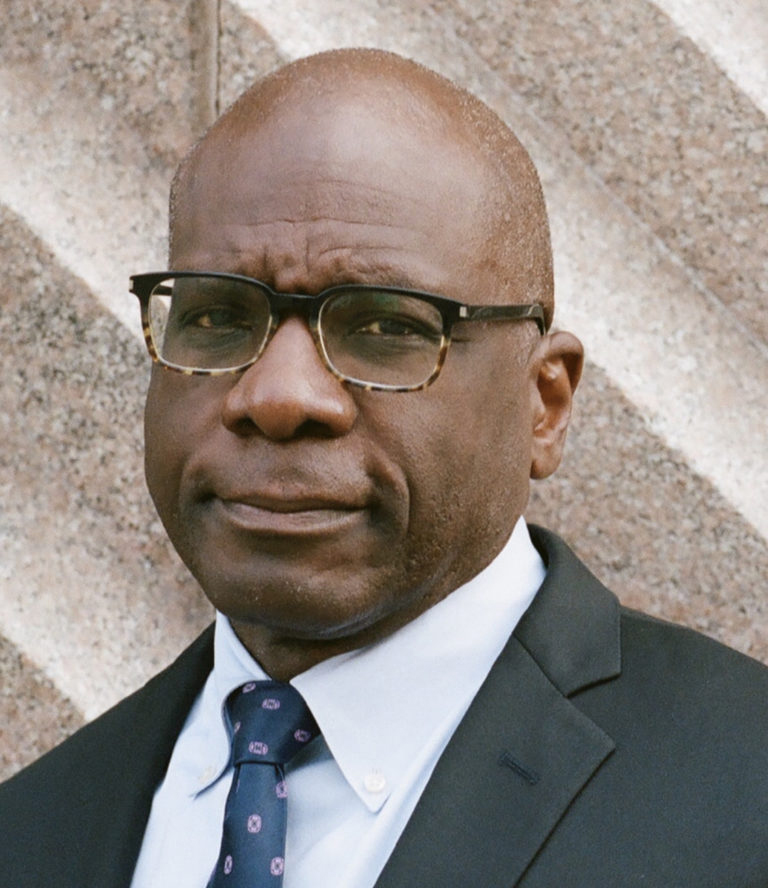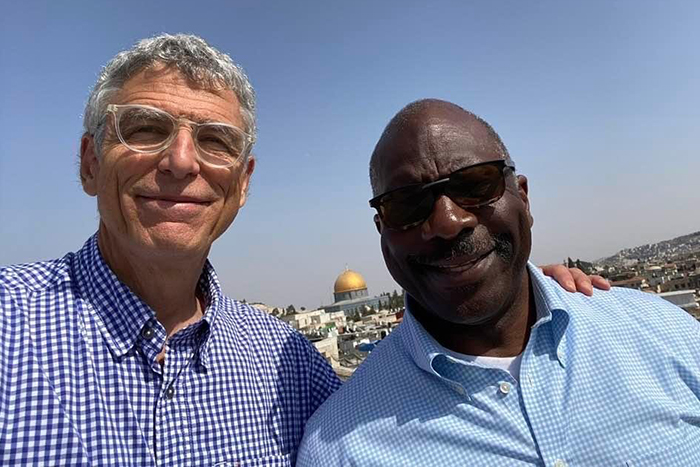
This piece originally appeared in the New York Daily News.
Over 35 years ago, we — a reverend and a rabbi — forged a deep connection rooted in our faithful pursuit of justice in a multi-faith, multi-racial community coalition dedicated to building affordable housing in Brooklyn. Since then, we’ve moved on to new workplaces and roles but have remained connected.
Last week, we traveled together to Israel and the Palestinian territories with a remarkable group of Black civil rights leaders and Reform Jewish leaders, including those who sit at the intersection of being Black and Jewish. We imagined that there would likely be bumps along the way, and there were. However, our group knew one another from our ongoing social justice and racial equity work in the United States, so there was a reservoir of goodwill and commonality that served us well.
We shared sacred places and ritual moments. We commemorated the destruction of the First and Second Temples on Tisha B’Av at the egalitarian section of the Western Wall and experienced prayerful reflections at the Church of the Holy Sepulchre. Ancient and modern narratives collided, such as when we walked through a Palestinian refugee camp seeing the occupation up close, or when speaking to a leader of the Israeli settlement movement. These moments required that our group take deep breaths and consider reflections that weren’t always familiar or comfortable. We met with activists and leaders from across the political spectrum who complicated and challenged our assumptions.
Because we were more focused on meeting grassroots leaders, we had not generally reached out for meetings with national leaders. However, given Rabbi Jacobs’ close relationship with President Isaac Herzog, he reached out to him in the middle of our trip. He cleared some time for our group to have an honest and substantial discussion about the questions progressive Black civil rights leaders bring to the urgent issues of justice facing this complicated region.
We spent time making our way through the heart-piercing exhibits of Yad Vashem, Israel’s Holocaust museum and memorial. While the U.S. Holocaust Memorial is built on the National Mall in Washington, when we stepped out of Yad Vashem, we looked out on the Judean Hills. The symbolism is clear: In America the response to what Elie Wiesel called the “Kingdom of Night” is a country aspiring to be built on “liberty and justice for all.” In Israel, the response is national sovereignty in the Jewish people’s historic homeland, providing a home for Jews in need of refuge, including those arriving today from Ethiopia and Ukraine.
Before we resumed our journey, we needed to ritually respond. One of our Christian ministers led us in reflection and prayer near the grove of trees planted in memory of the “righteous among the nations,” those altruistic non-Jews who risked everything to shelter Jews during the Shoah.
It is hard not to despair when encountering the longstanding, intractable conflict between Israelis and Palestinians. Yet in the course of our time together, we managed to crack open our hearts to narratives we hadn’t truly heard or seen before. Just as we were sitting down for our Shabbat dinner to experience a joyful respite from the intensity of our week with singing, candles and kiddush, we heard the first reports of hostilities in and around Gaza, which had already become deadly.
Our Israeli tour educator was traveling to meet us from her home outside Jerusalem when the sirens sounded, sending her three young children to the bomb shelter. We weren’t just reading about the latest round of violence; we were among those experiencing it in real time. We shared solidarity with Israelis seeking shelter from the hundreds of rockets and grief with Palestinians mourning the innocent deaths in Gaza, especially the young children.
In the coming weeks, we’ll each take time to sort through our time together. Thankfully, as we were boarding our flights home, the Egypt-brokered ceasefire took effect and has prevented further loss of life.
We are leaders of change. We do not give up on the work of shaping a more loving, just, equitable and peaceful world, no matter how challenging it might be. We are inspired by the work of young people such as Noor A’wad, a Palestinian who cultivates community building between Palestinians and Israelis through an organization called Roots. We all feel called to follow the instruction in Psalm 34:15, “Seek peace and pursue it.” The text implores us that it is not enough to seek peace. Rather, we are commanded to chase after it. Such an obligation feels both urgent and beyond our reach. A 2,000-year-old Jewish teaching offers a strategy for taking on such challenges: “It’s not your duty to finish the work, but neither are you free to desist from giving it your all.
Related Posts
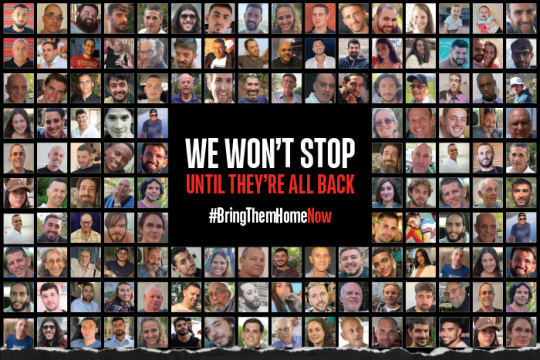
URJ and Israel: Post-October 7th Updates and Resources
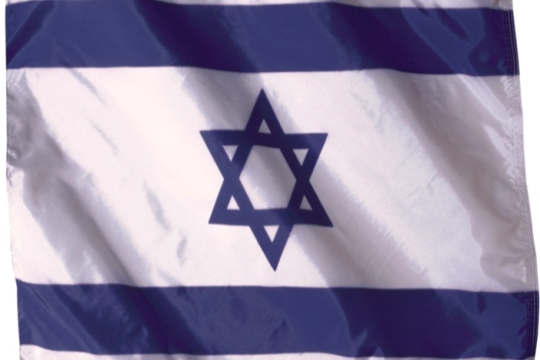
Israel: A Toolkit
